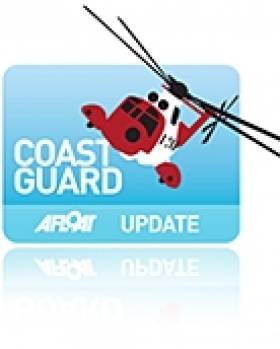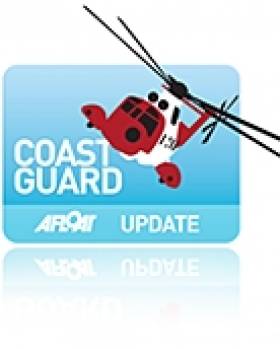Displaying items by tag: Noel Dempsey T.D
Today the Minister for Transport Mr Noel Dempsey T.D. announced the 2011 Estimates provision for his Department. The following are the principal features of the 2011 Estimates for marine affairs in his remit.
The 2011 capital provision will be €15 million, compared with €13 million in 2010. The principal item of capital expenditure is the provision of a search and rescue helicopter service (€8 million). Also included is expenditure on the Irish Coast Guard, maritime safety and remedial works at regional harbours.
The 2011 provision will be €39 million unchanged from 2010 for current expenditure. The principal item of expenditure is the provision of a search and rescue helicopter service (€27m current expenditure).
The contract, will provide SAR services from bases at Waterford, Dublin, Shannon and Sligo from 2012 onwards. CHC already provides SAR services from these bases but the new contract will see the existing fleet of S-61N aircraft replaced with newer Sikorsky S-92A helicopters that are custom fitted for SAR work.
Irish Coast Guard Director Chris Reynolds said, "The Irish Coast Guard provides a diverse range of maritime and land-based SAR activities, ranging from national emergency situations such as the recent flooding seen in Ireland last winter to medevac from our Islands, mountains, fishing vessels and incidents involving leisure activity."
"It is essential we have the right stepped increase in capabilities going forward for the next decade. We are very confident in selecting CHC Helicopter that our decision will continue to deliver excellence, providing the most efficient and effective SAR service for Ireland."
The Irish contract cements CHC Helicopter's position as a world leader in provision of civilian SAR services. In addition to the service already provided in Ireland, CHC currently provides SAR coverage in Australia and the UK, and through its membership in the Soteria consortium, has been identified as the preferred bidder on the UK SAR-H program, a 25-year contract to provide helicopter-based SAR services from 12 bases throughout the UK.
"CHC is internationally recognised as a provider of effective SAR solutions to customers worldwide. In today's very challenging environment, we offer the most efficient, reliable and effective services using industry leading technology," said Tilmann Gabriel, chairman of CHC Ireland and president of CHC Helicopter's European Operations.
Mark Kelly, Managing Director of CHC Ireland, added that Irish citizens could now expect to see many positive changes arise.
"Over the next decade this contract will offer a number of service improvements including the ability to deliver a paramedic to any SAR incident within an hour anywhere on our coastline, ensuring much faster treatment of casualties," he said.
CHC is the world's largest operator of the Sikorsky S-92 helicopter that has a long and distinguished pedigree in SAR operations. There are currently more than 100 S-92 helicopters in operation around the world with a fleet total approaching 250,000 flight-hours.
The state-of-the-art twin-engine aircraft will be specially equipped for SAR operations and capable of flying faster and farther than aircraft currently in use. As well as longer range and improved cruising speeds, the S-92s will be equipped with enhanced rescue mission technology including infra-red and low light cameras, a Nightsun searchlight, a satellite communications system featuring a Flight Following tracking facility, and high speed dual hoists.
Signing of Search and Rescue Helicopter Contract Tomorrow
Tomorrow, Thursday, 22nd July 2010, Transport Minister, Noel Dempsey T.D., will sign a contract awarding the provision of Helicopter SAR services to CHC Ireland. The company will use the new Sikorsky S92A machine in its SAR role.






























































